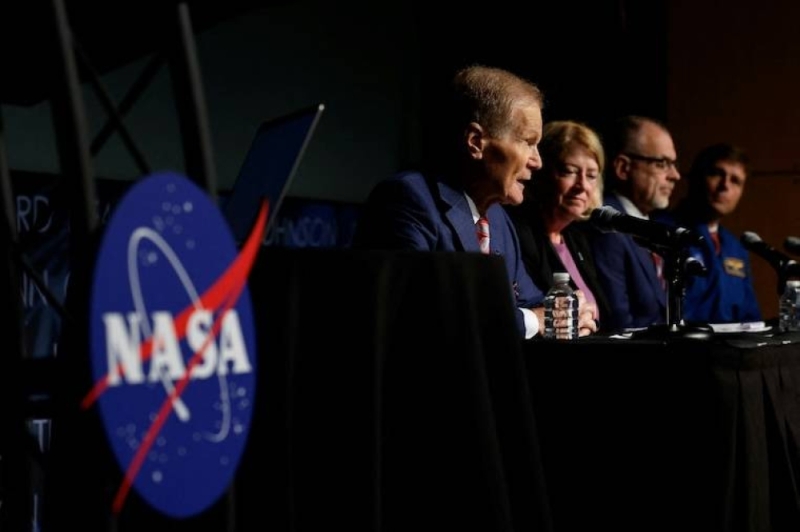Tecnología
AI chip industry shifts focus as Nvidia faces new competition

The development of the current generation of AI chatbots has relied heavily on specialized microprocessors, pioneered by Nvidia, which has dominated the market and become a symbol of the artificial intelligence boom.
However, the same qualities that make these GPU (graphics processing unit) chips so effective for building powerful AI systems from scratch render them less efficient for running AI products on a daily basis. This has created opportunities in the AI chip industry for rivals aiming to compete with Nvidia by offering so-called AI inference chips. These chips are specifically designed to handle the operational needs of AI tools while cutting down on the significant costs associated with generative AI.
“These companies see opportunities for this kind of specialized hardware,” said Jacob Feldgoise, an analyst at Georgetown University’s Center for Security and Emerging Technology. “As the adoption of these models grows, the need for inference calculations will increase, driving demand for inference chips.”
International
Science Brings Back the Extinct Direwolf with Successful De-Extinction Project

Science has achieved what was once confined to the realm of fantasy: the direwolf, extinct for over 10,000 years and popularized by the Game of Thrones series, has been brought back to life thanks to an ambitious de-extinction project led by the biotechnology company Colossal Biosciences.
The Texas-based company announced on Monday the birth of three direwolf pups, created through a combination of cloning and genetic editing. The pups include two males, Romulus and Remus, both six months old, and a three-month-old female named Khaleesi, in honor of the character from the HBO series.
The process that led to these wolves began with the extraction of ancient DNA from a 13,000-year-old tooth and a 72,000-year-old skull. Using this genetic material, scientists edited 20 genes in the cells of a modern gray wolf, its closest relative. These cells were then implanted into domestic dog eggs for gestation.
“The birth of these pups is a huge milestone,” said Ben Lamm, CEO of Colossal, who emphasized that this is the world’s first successful de-extinction. “This achievement shows that our technology works and marks the beginning of a new era for species conservation,” he said.
International
NASA’s lunar mission faces setbacks, pushed to mid-2027

NASA announced another delay for its Artemis 3 mission, pushing the first manned lunar landing since 1972 to mid-2027. Technical problems with the Orion spacecraft’s heat shield were cited as the primary reason for the postponement.
“Safety is our top priority, and we won’t proceed until we are ready,” said NASA Administrator Bill Nelson. He emphasized that the delay will still keep the U.S. ahead of China’s plan to send a crewed mission to the Moon by 2030.
Artemis 1 successfully sent the uncrewed Orion capsule around the Moon in 2022, but subsequent missions have faced repeated setbacks.
Tecnología
U.S. Federal Trade Commission investigates Microsoft over potential antitrust violations

The U.S. Federal Trade Commission (FTC) has launched an antitrust investigation into Microsoft Corp., covering its cloud computing and software licensing businesses, as well as its cybersecurity offerings and artificial intelligence products.
After more than a year of informal interviews with competitors and business partners, antitrust authorities have crafted a detailed request to compel Microsoft to provide information, according to people familiar with the matter. The request, which consists of hundreds of pages, was sent to the company after FTC Chair Lina Khan gave her approval, one source said. FTC antitrust lawyers are scheduled to meet with Microsoft’s competitors next week to gather more information about the company’s business practices, according to two other sources familiar with the plans, who, like the others, requested anonymity due to the confidential nature of the matter.
Microsoft and the FTC declined to comment.
-

 Central America4 days ago
Central America4 days agoHonduran Police Offer $135K for Tips Leading to the Arrest of Romeo Vásquez
-

 Central America3 days ago
Central America3 days agoPetro questions Ecuador’s vote, cites reports of military control and arrests
-

 International4 days ago
International4 days agoMPV Denounces Electoral Blockade as Secretary-General is Disqualified for May Elections
-

 International2 days ago
International2 days agoArsenal stun Real Madrid at the Bernabéu to reach Champions League semifinals
-

 International4 days ago
International4 days agoMaduro Plans Major Workers’ March on May 1st to Defend Venezuela’s Freedom
-

 International2 days ago
International2 days agoBogotá residents line up for yellow fever vaccine amid national alert
-

 International2 days ago
International2 days agoMexico refuses to restore ties with Ecuador while Noboa remains in office
-

 International2 days ago
International2 days agoDeSantis’ immigration crackdown sparks alarm in Venezuelan Communities in Doral
-

 International19 hours ago
International19 hours agoDominican ‘False Hero’ Arrested for Faking Role in Nightclub Collapse That Killed 231
-

 Central America19 hours ago
Central America19 hours agoNicaraguan Exiles to Mark 7th Anniversary of 2018 Protests with Global Commemorations
-

 International3 days ago
International3 days agoColombia: Search continues for missing limb of italian scientist found dismembered








